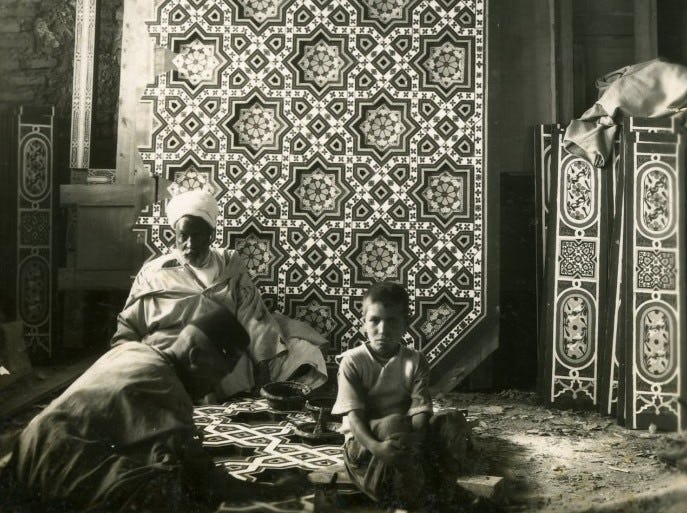Polychrome Wooden Panels with Arabic Poetry Inscriptions
DateDated 1271 AH (1854 - 1855 CE)
PeriodOttoman
MediumWood, polychrome pigments
DimensionsOverall: 106 1/2 x 42 in. (270.5 x 106.7cm)
ClassificationsWoodwork
Object number64.6.9a-e
DescriptionThis small, shuttered wall closet, called a khazāna or dūlāb, would have been used for storage within the qa’a, or reception hall, of a private home in Ottoman Damascus. The wooden panels are decorated using a technique called ‘ajami, a style of decoration that was used to embellish the walls of Damascene homes during the rule of the Ottoman empire. In this technique, gesso is applied to the woodwork in relief, painted with washes of brightly colored glazes, and illuminated with metal leaf.The panel above the closet contains an Arabic inscription in gilded thuluth script:
You are in the unique (orphan)
1271 AH (1855 AD)
The inscription is part of a poem by Abū ʿAbdallāh Muhammad ibn Saʿīd al-Shanhājī al-Būṣīrī (1211–1294 CE). Al-Būṣīrī was a Moroccan-born Egyptian poet known for his poetry in praise of the Prophet Mohammed. The verse is continued on panels throughout the room.
On View
On viewCollections
Dated 1271 AH (1854 - 1855 CE)
Dated 1271 AH (1854 - 1855 CE)
Dated 1271 AH (1854 - 1855 CE)
Dated 1271 AH (1854-1855 CE)
Dated 1271 AH (1854 - 1855 CE)
Dated 1271 AH (1854 - 1855 CE)
Dated 1271 AH (1854 - 1855 CE)
Dated 1271 AH (1854 - 1855 CE)
Dated 1271 AH (1854 - 1855 CE)
11th -12th century

















